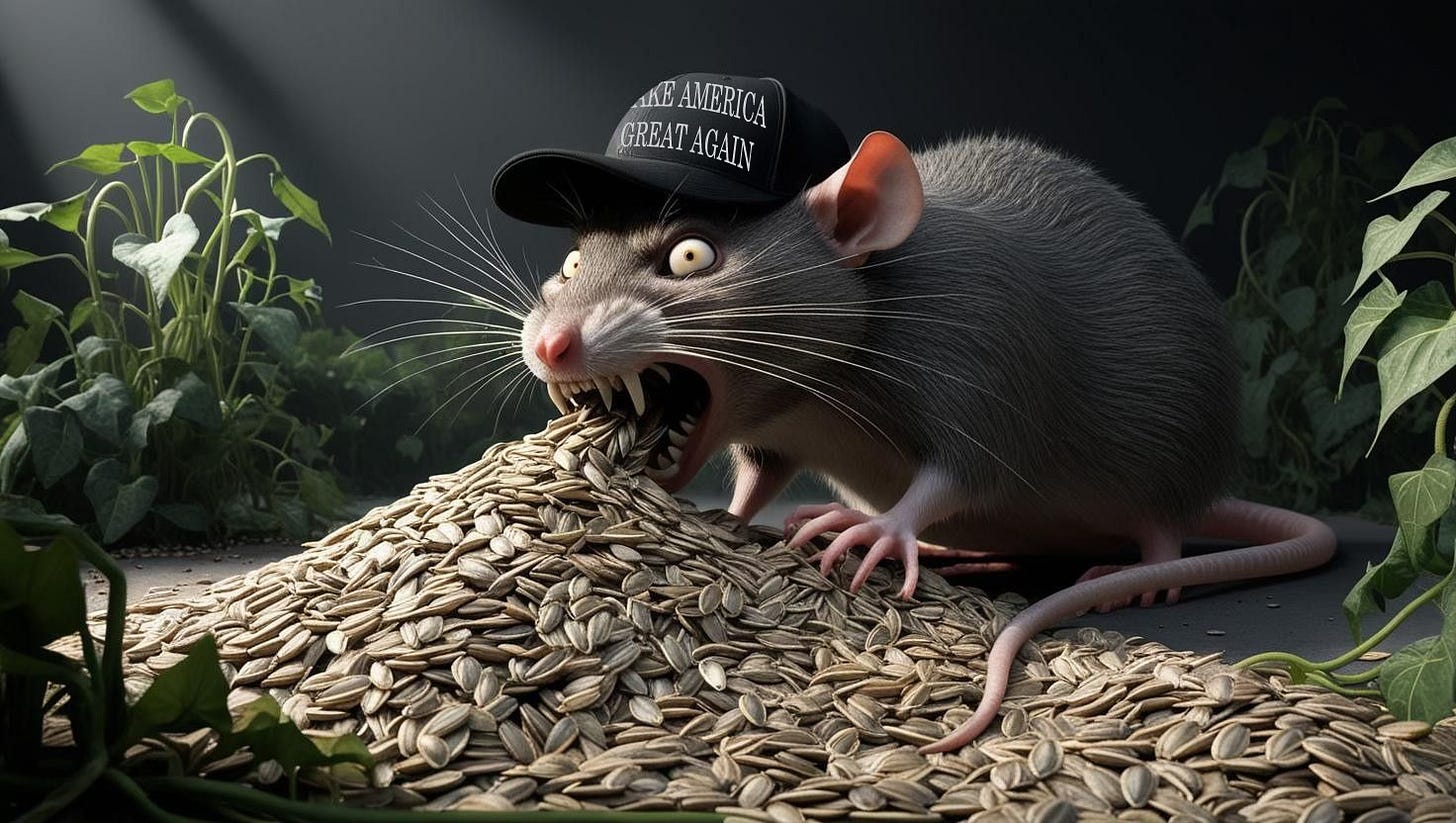Go offline with the Player FM app!
Don’t Let Elon Musk Eat Our Food Future!
Manage episode 478840285 series 56780
Over the millennia, farmers everywhere have learned the wisdom of a commonsense practice in agriculture: Don’t Eat Your Seed Corn.
Raise the best crop you can—but be sure to store enough of the seed you produce this year to plant next year’s crop. Even with the razzle-dazzle computerization modern-day agriculture, seed savers are as essential as ever. Maybe more so, given climate change, mass pollution, species collapses, genetic loss, etc. Seeds are our future.
Luckily, a local, national, and global movement arose decades ago to say: “Let’s not be stupid.” Noting that new diseases, pests, blights, etc. continually break out around the globe, wiping out entire varieties of essential food crops, pioneers of this movement set up a system of “gene banks” for future needs.
Established in the Ag Department in 1898, these banks collect, store and keep alive vast reserves of seeds containing the genetic diversity of our entire food supply. They are literally a human survivalist resource. For example, if a devastating fungus infects a variety of wheat, scientists can search 62,000 other wheat varieties in the gene bank to find seed with a natural resistance to that fungus.
With a shoestring budget and a small staff of scientists, this network of 22 regional gene banks is government at its best, doing invaluable public work, efficiently.
But then, stupid showed up. Elon Musk, Trump’s thuggish whacker of the common good, has stormed into the seed saver community with his cartoonish chainsaw roaring. He summarily fired the network’s top plant scientists, slashed its meager budget—and is playing God with our food future.
This is Jim Hightower saying… Just as rats should be kept out of America’s seed bins, so should Elon Musk.
Jim Hightower's Lowdown is a reader-supported publication. To receive new posts and support my work, consider becoming a free or paid subscriber.
696 episodes
Manage episode 478840285 series 56780
Over the millennia, farmers everywhere have learned the wisdom of a commonsense practice in agriculture: Don’t Eat Your Seed Corn.
Raise the best crop you can—but be sure to store enough of the seed you produce this year to plant next year’s crop. Even with the razzle-dazzle computerization modern-day agriculture, seed savers are as essential as ever. Maybe more so, given climate change, mass pollution, species collapses, genetic loss, etc. Seeds are our future.
Luckily, a local, national, and global movement arose decades ago to say: “Let’s not be stupid.” Noting that new diseases, pests, blights, etc. continually break out around the globe, wiping out entire varieties of essential food crops, pioneers of this movement set up a system of “gene banks” for future needs.
Established in the Ag Department in 1898, these banks collect, store and keep alive vast reserves of seeds containing the genetic diversity of our entire food supply. They are literally a human survivalist resource. For example, if a devastating fungus infects a variety of wheat, scientists can search 62,000 other wheat varieties in the gene bank to find seed with a natural resistance to that fungus.
With a shoestring budget and a small staff of scientists, this network of 22 regional gene banks is government at its best, doing invaluable public work, efficiently.
But then, stupid showed up. Elon Musk, Trump’s thuggish whacker of the common good, has stormed into the seed saver community with his cartoonish chainsaw roaring. He summarily fired the network’s top plant scientists, slashed its meager budget—and is playing God with our food future.
This is Jim Hightower saying… Just as rats should be kept out of America’s seed bins, so should Elon Musk.
Jim Hightower's Lowdown is a reader-supported publication. To receive new posts and support my work, consider becoming a free or paid subscriber.
696 episodes
All episodes
×Welcome to Player FM!
Player FM is scanning the web for high-quality podcasts for you to enjoy right now. It's the best podcast app and works on Android, iPhone, and the web. Signup to sync subscriptions across devices.




